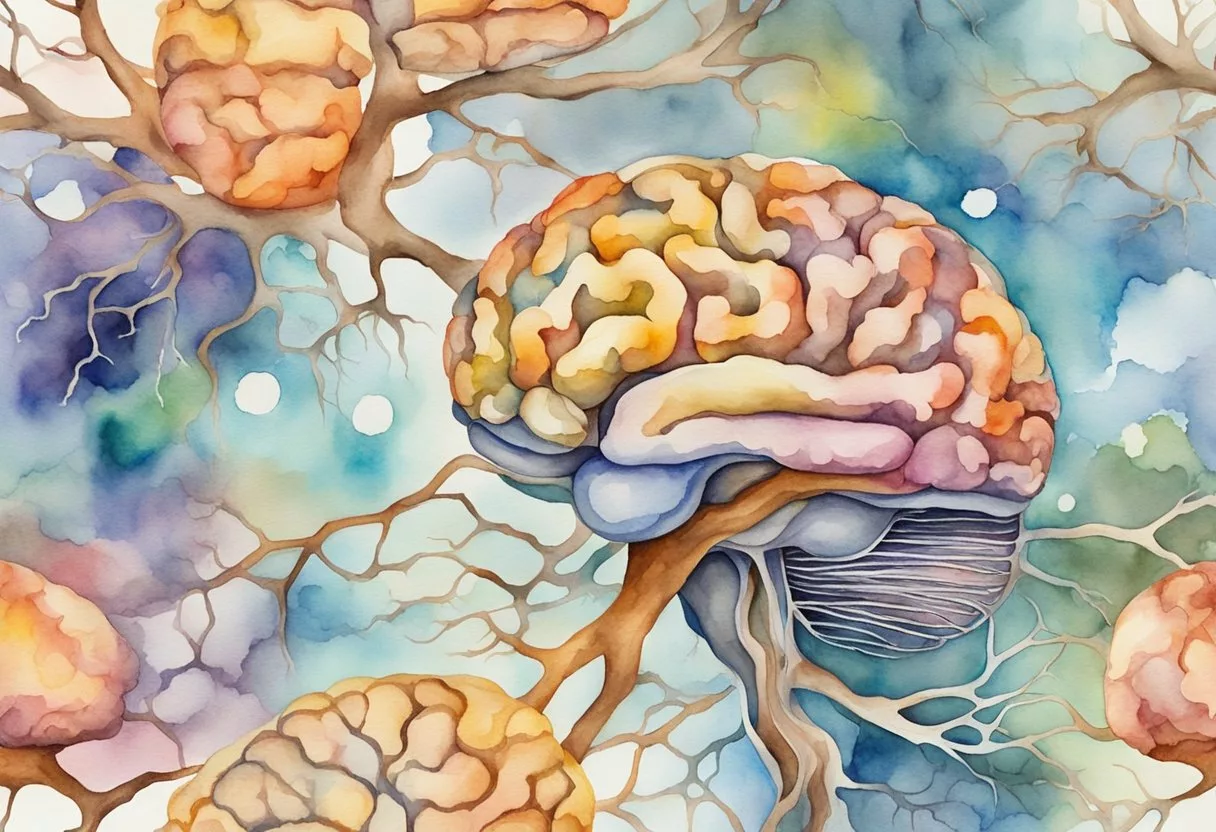Fasting for 24 hours can lead to many changes in the body. When you stop eating for a full day, your body starts to use stored energy. This process can affect how you feel and function.

During a 24-hour fast, your body enters a state called ketosis, where it burns fat for fuel instead of glucose. This shift can lead to weight loss and may have other health benefits. Some people report feeling more alert and focused during a fast, while others may feel tired or hungry.
A day-long fast can also trigger a process called autophagy. This is when your body cleans out old or damaged cells. Some scientists think this might help slow down aging and prevent certain diseases.
Key Takeaways
- A 24-hour fast triggers ketosis and fat burning
- Fasting can start autophagy, a cellular cleanup process
- A full day without food may affect energy levels and focus
Understanding Fasting and Its Types

Fasting involves abstaining from food for specific periods. Different fasting methods offer unique benefits and suit various lifestyles.
Intermittent Fasting
Intermittent fasting alternates eating periods with fasting windows. This approach can help reduce insulin resistance and improve metabolism.
Common patterns include:
- 16/8: Fast for 16 hours, eat within 8 hours
- 5:2: Eat normally 5 days, restrict calories 2 days
Many find intermittent fasting easier to maintain than traditional diets. It may boost weight loss and heart health.
Time-Restricted Feeding
Time-restricted feeding limits daily eating to a set window, often 8-12 hours. This method aligns with the body’s natural circadian rhythm.
Benefits include:
- Improved sleep quality
- Better digestion
- Increased fat burning
A popular approach is to stop eating after dinner and delay breakfast. This can create a 12-16 hour fasting period overnight.
Alternate-Day Fasting
Alternate-day fasting switches between regular eating days and fasting or very low-calorie days. This pattern can be more challenging but may offer stronger health effects.
Potential benefits:
- Significant weight loss
- Reduced inflammation
- Improved heart health markers
Some versions allow 500-600 calories on fasting days. This can make the method more sustainable for some people.
Prolonged Fasting
Prolonged fasting lasts 24 hours or more. It can trigger deeper cellular changes like autophagy, where the body recycles old cells.
Key points:
- May boost longevity and reduce disease risk
- Can be challenging and requires medical supervision
- Not suitable for everyone, especially those with health issues
A 24-hour fast can offer benefits like decreased insulin resistance and improved cognitive function. Longer fasts should be done carefully and with guidance.
The Science of Fasting

Fasting triggers important changes in the body. It shifts metabolism, affects blood sugar, and promotes cellular cleanup.
Metabolic Shift to Ketosis
When you fast for 24 hours, your body runs out of glucose from food. It then turns to glycogen stores[1] in the liver and muscles. As these deplete, the body enters ketosis.
In ketosis, fat becomes the main fuel source. The liver produces ketones from fat, which feed the brain and other organs.
This metabolic switch can happen around 12-16 hours into a fast. It may lead to increased mental clarity and focus for some people.
Insulin and Blood Sugar Regulation
Fasting has a big impact on insulin and blood sugar levels. When you don’t eat, insulin levels drop. This allows the body to access stored fat for energy.
Lower insulin levels can improve insulin sensitivity. This means cells respond better to insulin’s signals.
Fasting may help control blood sugar in some people. But those with diabetes should be careful and talk to a doctor first.
Autophagy and Cellular Renewal
Autophagy is a key benefit of fasting. It’s the body’s way of cleaning out damaged cells and creating new ones.
This process ramps up during fasting. It helps remove cellular junk and repair proteins.
Autophagy may start after 12-16 hours of fasting. It peaks around 24-48 hours.
This cellular cleanup might slow aging and prevent some diseases. But more research is needed to fully understand its effects in humans.
Physical Changes During a 24-Hour Fast

Fasting for 24 hours triggers several physical changes in the body. These changes affect metabolism, body composition, and fluid balance.
Fat Burning and Weight Loss
During a 24-hour fast, the body starts to use stored fat for energy. This process, called lipolysis, breaks down fat cells to release fatty acids.
The body burns these fatty acids for fuel when glucose is not available. This can lead to weight loss, though the amount varies among individuals.
Fat burning typically increases after 12-18 hours of fasting. The body may burn an extra 150-200 calories per day during this time.
Muscle and Protein Conservation
Contrary to common belief, a 24-hour fast does not cause significant muscle loss. The body preserves muscle tissue during short fasts.
It does this by reducing protein breakdown and increasing growth hormone production. Growth hormone helps protect lean body mass.
Protein conservation starts around 12-16 hours into the fast. The body mainly uses fat for fuel, sparing muscle tissue.
Hydration and Electrolyte Balance
Water intake is important during fasting[2]. The body loses water as it burns through glycogen stores in the first 12-18 hours.
Electrolyte balance can shift during a fast. Sodium levels may drop slightly as the body excretes more sodium in urine.
Potassium levels often remain stable. Magnesium and calcium levels usually don’t change much in a 24-hour fast.
Drinking water helps maintain hydration. Adding a pinch of salt to water can help balance electrolytes.
Hormonal and Biochemical Responses

Fasting for 24 hours triggers significant changes in hormone levels and biochemical processes in the body. These shifts help the body adapt to the lack of food intake and maintain essential functions.
Human Growth Hormone Secretion
Human growth hormone (HGH) levels increase during a 24-hour fast. This hormone plays a key role in metabolism, cell repair, and muscle growth.
Studies show[3] that HGH levels can rise by up to 500% during fasting. The boost in HGH helps preserve muscle mass and promote fat burning.
Higher HGH levels may also improve insulin sensitivity. This can help regulate blood sugar more effectively when you resume eating.
Changes in Ghrelin Levels
Ghrelin, often called the “hunger hormone,” shows interesting patterns during a 24-hour fast. Initially, ghrelin levels rise, causing hunger pangs.
But as the fast continues, ghrelin levels often stabilize or even decrease. This helps explain why hunger may lessen after the first few hours of fasting.
Lower ghrelin can lead to reduced appetite. Some people report feeling less hungry after a 24-hour fast than before they started.
Blood Pressure and Blood Lipids
A 24-hour fast can affect both blood pressure and blood lipid levels. Many people see a slight drop in blood pressure during a fast.
Fasting may also impact[4] triglyceride levels in the blood. Some studies show decreased triglycerides after fasting periods.
These changes are usually temporary. Blood pressure and lipid levels typically return to normal once regular eating resumes.
It’s important to note that people with certain health conditions should consult a doctor before fasting. This includes those with high or low blood pressure.
Psychological and Cognitive Effects

Fasting for 24 hours can impact mental processes and brain function. It changes how we experience hunger and fullness. It may also boost mental clarity and brain health.
Hunger and Fullness Cues
During a 24-hour fast, hunger signals change. At first, hunger may increase. But after 12-18 hours, many people report feeling less hungry.
The body adapts to the lack of food. It starts using stored fat for energy. This can make hunger feelings less intense.
Fasting glucose levels drop[4]. This affects hormones that control appetite. Some people feel more in tune with their body’s true hunger cues.
Fullness signals may become sharper after fasting. This can lead to better portion control when eating resumes.
Mental Clarity and Brain Function
Many report improved mental clarity during fasting. This may be due to the body shifting to ketone production for fuel.
Ketones can boost brain function[5]. They provide energy and reduce inflammation in neurons.
Fasting may increase BDNF (Brain-Derived Neurotrophic Factor). BDNF helps create new neurons and protect existing ones.
Some studies show fasting improves:
- Focus
- Memory
- Learning ability
These benefits can last even after the fast ends. However, very long fasts may impair concentration due to low blood sugar.
Health Benefits of a 24-Hour Fast

Fasting for 24 hours can lead to several positive changes in the body. These changes affect weight, inflammation, heart and brain function, and even cancer risk.
Weight Management and Obesity
A 24-hour fast can help with weight control. When you don’t eat for a day, your body uses up stored energy.
This process is called ketosis. It happens when the body burns fat for fuel. Ketosis can lead to weight loss over time.
Fasting also lowers insulin levels. This makes it easier for the body to use fat stores. Some people find that fasting helps them eat less overall.
Regular 24-hour fasts may improve metabolism. A faster metabolism can help with long-term weight control.
Inflammation and Immune System
Fasting for 24 hours can reduce inflammation in the body. Less inflammation means a stronger immune system.
During a fast, the body removes old and damaged cells. This process is called autophagy. It’s like a cleanup for your cells.
Autophagy can help:
- Reduce inflammation
- Boost immune function
- Slow down aging
Some studies show that fasting can lower markers of inflammation in the blood. This may help prevent chronic diseases.
Cardiovascular and Brain Health
A 24-hour fast can be good for your heart and brain. It may help lower blood pressure and reduce bad cholesterol.
Fasting can improve heart health by:
- Reducing triglycerides
- Increasing good cholesterol
- Lowering inflammation
For the brain, fasting may:
- Boost brain cell growth
- Improve memory
- Protect against neurodegenerative diseases
Some research suggests that fasting can increase a protein called BDNF. This protein helps create new brain cells.
Cancer Risk and Management
While more research is needed, some studies suggest that fasting may help with cancer prevention and treatment.
Fasting might:
- Lower risk factors for certain cancers
- Make cancer cells more sensitive to treatment
- Help reduce side effects of chemotherapy
Cellular rejuvenation[6] triggered by fasting may play a role in cancer prevention. This process helps remove damaged cells that could become cancerous.
For cancer patients, fasting before treatment might make cancer cells more vulnerable. This could make treatments more effective.
Potential Risks and Considerations

Fasting for 24 hours can pose some health risks. People should be aware of these risks before trying a fast.
Nutritional Deficiencies
Skipping meals for a full day can lead to missing out on important nutrients. The body needs vitamins, minerals, and other nutrients daily.
Some key nutrients that may be lacking during a 24-hour fast include:
- Protein
- B vitamins
- Iron
- Calcium
These nutrients play vital roles in body functions. Lack of protein can affect muscle health. B vitamins are crucial for energy production.
Repeated fasting may increase the risk of deficiencies over time. This is especially true for people with existing nutritional issues.
Metabolic Health Complications
A 24-hour fast can affect blood sugar levels and metabolism. This can be risky for some people.
People with diabetes need to be extra careful. Fasting can cause dangerous drops in blood sugar. This may lead to hypoglycemia.
Symptoms of low blood sugar include:
- Dizziness
- Weakness
- Confusion
- Headaches
Fasting can also affect how medications work in the body. Some drugs need to be taken with food.
Long-term fasting might slow down metabolism. This can make weight loss harder in the future.
Impact on Chronic Conditions
People with certain health issues should avoid 24-hour fasts. These fasts can worsen some conditions.
Eating disorders can be triggered by fasting. People with a history of anorexia or bulimia should not fast.
Other conditions that may be affected include:
- Heart disease
- Kidney problems
- Liver disease
Fasting can stress the body. This stress might make symptoms worse in some chronic illnesses.
Pregnant women and growing children should not do 24-hour fasts. Their bodies need regular nutrition for proper growth and development.
Adapting Your Lifestyle for Fasting

Changing your daily habits can help you get the most out of fasting. Making smart food choices, staying active, and planning your fasting schedule are key.
Diet and Nutritional Choices
When not fasting, focus on eating whole foods. These include fruits, vegetables, lean proteins, and healthy fats. They provide essential nutrients and help keep you full longer.
Try to cut back on processed foods and added sugars. These can make fasting harder by causing blood sugar spikes and crashes.
Some people find a low-carb diet helpful when fasting. It can make the transition to burning fat for energy easier.
Stay hydrated during fasting periods. Drink plenty of water, and consider adding electrolytes if fasting for longer periods.
Exercise and Physical Activity
Regular exercise can boost the benefits of fasting. It helps burn fat and build muscle.
Light to moderate exercise is often best during fasting periods. This could include walking, yoga, or swimming.
For more intense workouts, it’s usually better to schedule them during eating windows. This ensures your body has enough fuel.
Listen to your body. If you feel weak or dizzy while exercising during a fast, stop and rest.
Scheduling Fasts and Eating Windows
Choose fasting windows that fit your lifestyle. Many people find it easier to fast overnight and into the morning.
Start with shorter fasts, like 12-16 hours. Gradually increase the length as your body adapts.
Plan your eating windows around social events or family meals. This helps maintain a normal social life while fasting.
Be flexible. If you need to adjust your fasting schedule occasionally, that’s okay.
Use a timer or app to track your fasting and eating windows. This can help you stay on track and consistent.
Frequently Asked Questions

Fasting for 24 hours can have various effects on the body. It may offer health benefits, influence weight loss, and impact different bodily functions. There are also potential risks to consider and important things to avoid after completing a fast.
What are the health benefits of doing a 24-hour fast once a week?
A weekly 24-hour fast may support weight loss and improve metabolic health. It can help lower insulin levels and increase human growth hormone production. This type of fasting may also promote cellular repair processes in the body.
Fasting for 24 hours once a week might reduce inflammation and oxidative stress. It could potentially improve heart health by lowering blood pressure and cholesterol levels.
How does fasting for 24 hours influence weight loss?
A 24-hour fast can aid weight loss by reducing calorie intake and altering hormone levels. When fasting, the body uses up its glycogen stores and starts burning fat for energy.
This type of fasting may increase metabolic rate slightly, helping to burn more calories. It can also lower insulin levels, which may make stored body fat more accessible for burning.
Can fasting for 24 hours reset your body, and if so, how?
Fasting for 24 hours can initiate several cellular repair processes in the body. It may trigger autophagy, where cells break down and recycle old or damaged components.
This fasting period can also help reset circadian rhythms and improve insulin sensitivity. It may give the digestive system a break, potentially reducing inflammation in the gut.
What are the risks associated with fasting for 24 hours?
Fasting for 24 hours can cause side effects like hunger, irritability, and fatigue. Some people may experience headaches, dizziness, or difficulty concentrating.
There’s a risk of overeating after the fast ends. People with certain health conditions, such as diabetes, should consult a doctor before attempting a 24-hour fast.
How does a 24-hour fast compare to shorter fasting periods, like 16-hour fasts, in terms of health impacts?
A 24-hour fast may provide more pronounced benefits for autophagy and cellular repair compared to shorter fasts. It can lead to greater depletion of glycogen stores and more time in a fat-burning state.
Shorter fasts like 16-hour fasts are often easier to maintain regularly. They can still provide benefits like improved insulin sensitivity and may be more suitable for some people’s lifestyles.
What should you avoid doing after completing a 24-hour fast?
After a 24-hour fast, avoid overeating or consuming large meals immediately. It’s best to break the fast with small, easily digestible foods.
Steer clear of processed or high-sugar foods when ending the fast. These can cause rapid spikes in blood sugar. It’s also wise to avoid intense physical activities right after a long fast.
References
- Fasting Benefits by Hour: Detailed Fasting Timeline. https://www.doctorkiltz.com/fasting-benefits-by-hour/ Accessed November 7, 2025
- What happens if you don't eat for a day? Timeline and effects. https://www.medicalnewstoday.com/articles/322065 Accessed November 7, 2025
- The 5 Stages of Fasting (And The Benefits of Each One). https://perfectketo.com/the-5-stages-of-fasting/ Accessed November 7, 2025
- The Effect of Fasting on Human Metabolism and Psychological Health. https://www.ncbi.nlm.nih.gov/pmc/articles/PMC8754590/ Accessed November 7, 2025
- How Does Fasting Affect the Brain?. https://www.brainfacts.org/Thinking-Sensing-and-Behaving/Diet-and-Lifestyle/2018/How-Does-Fasting-Affect-the-Brain-071318 Accessed November 7, 2025
- 24-Hour Fasting Benefits and Risks. https://www.drberg.com/blog/24-hour-fasting-benefits Accessed November 7, 2025
